
Question: What happened to the one Native American that Governor Ratcliffe shot? I know he went back to the village for treatment but what happened to him afterwards? Did he die?

Question: Can anyone tell me if Santa Anna really ran away from Houston's forces as it shows in the movie? And was that battle really over in 18 minutes? (Not being an American or a Texan for that matter, I have very little knowledge about what happened at the Alamo, I'm just curious).
Answer: Yes, the battle of San Jacinto really did last 18 minutes. Houston's army surprised the Mexican army while they were taking an afternoon nap.
Answer: The defenders of the Alamo held off Santa Anna's troops for 13 days before a final assault on 6 March 1836, where the complex was stormed just before dawn. The battle ended by sunrise. Santa Anna was captured at the Battle of San Jacinto in April of the same year, and Texas won its independence from Mexico. Also check www.thealamo.org for detailed information and links.
Answer: In a way. Santa Anna tried to pass himself off as a common soldier, but when he was captured, his men spilled the beans by calling him by his title.

Question: Why did Brooks want to make his players hate him?
Answer: Since they all came from different, sometimes rival, universities, and thus had no commonality, he wanted to give them someone to dislike together, instead of fighting with one another. If they could all bond over what a bastard Brooks was, they'd come together faster as a team and have a chance of winning.
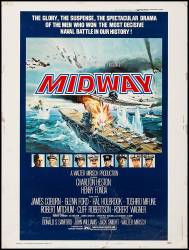
Question: When is The Coral Sea Battle shown?
Answer: It's shown in the original 4 hour movie. Most of the scenes from the Coral Sea Battle are cut from this version and the battle is referenced, but never really shown.
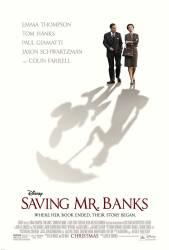
Question: Was P.L. Travers left-handed, as Emma Thompson portrays her when she is shown writing?
Chosen answer: It seems P. L. Travers was, in fact, right-handed. With just a bit of research, I found this YouTube video: http://www.youtube.com/watch?v=xeiEumLxTcM. At time reference 4:05, archive video shows Ms. Travers in her garden, holding a basket hooked on her left arm, and making clippings with a scissors in her right hand. Feeling convinced, I stopped, though I suspect further research (it's a six part biography) would yield other examples of P. L. Travers engaged in right-handed activities.
Only problem with the assumption that travers was right-handed because she trimmed plants with her right hand is that there were no (to my knowledge) scissors for lefties. I was born in 1955 and I am a lefty who cuts right-handed, wear my watch on my left wrist, and made other adaptations due to the fact that left-handers were ignored, and travers was born over 50 years earlier.
Answer: I do not know the actual answer to your question. However, I would like to point out as a lefty myself that we often have to use our right hand for certain activities just due to the fact that left handed options are not readily available. Scissors and shears are a great example of this. Very often you cannot just switch them to your left hand and have them work. They actually have to be put together to be left handed to work properly. Also, many left handed writers are also ambidextrous. For example I golf right handed but bat left handed so the two swings don't negatively affect each other.
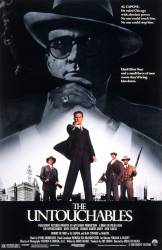
Question: How accurate is the portrayal of the Untouchables, when it comes to names and numbers? Were there actually only four of them? Do Garcia, Connery and Smith play actual people or fictive ones?
Answer: It's about 50% truth and 50% fiction. Ness, Al Capone, and Frank Nitty are real, of course, but the characters played by Connery, Garcia, and Smith are fictional. Ness started out with 50 candidates for his 'Untouchables' force. This was whittled down to 15 finalists and from that he selected 9 agents (none of which has the same name as the characters played by Connery, Garcia, and Smith). It's true that Capone was convicted for tax evasion. He was sentenced to 11 years in prison, but received an early release because he was in the last stages of syphilis. He died shortly after being released from prison.
Capone lived for 8 years upon his release from prison. The 8 years being slightly longer than the actual prison time he served, which was just over 7 years. He died, having the mental capabilities of a 12-year-old.
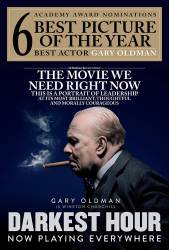
Question: In the 'War Room' scene, there appeared to be a sheet of plastic or acetate covering the wall with the map of the enemy's movements. Was that premature for plastic to be available in that size for that time frame?

Question: I first saw the movie in a cinema when it was first released. I'm quite sure I saw a scene which was later edited out, perhaps to accommodate the ratio of television screens. Before the attack various soldiers stop to listen to a strange sound echoing over the hills - "like a train" someone says. After we hear the sound twice my memory is that the movie cut to a panoramic view of thousands of Zulu warriors running across the veld, banging their shields with their spears, on their way to Rorke's Drift. This is what was causing the "train" sound, a phenomenon that is not explained subsequently anywhere in the edited version of the film. The dramatic effect of the shot, panning across what looks like thousands of armed Zulus, was riveting and served to emphasise the impossible odds faced by the British. Am I the only one who recalls this scene?
Answer: Absolutely correct. This exact scene is in my DVD of Zulu. They may have changes when the TV version aired, but this definitely in the original.
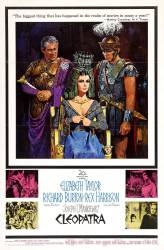
Question: During Rex Harrison's entire performance as Julius Caesar his arms and legs are covered by garments underneath his military garb and robes, even while in Egypt. The other Romans as would be expected have bare legs and arms. Was Harrison suffering from some skin condition or was he too shy or embarrassed of his limbs to show them in the film?
Answer: The people of higher rank would usually have more or better armor so in his case that would probably be extra armor for his legs and arms.
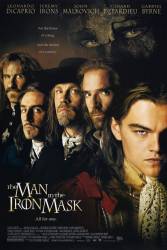
Question: I don't know anything about identical twins, so this is why I'm asking this question: how likely is it that Louis and Phillipe would have the exact same speech pattern?
Answer: There would be both genetic similarities and individual differences, and their vocabularies would have developed differently by education and experience. However, Phillipe was heavily tutored before the switch took place, and as "king" he would be able to distance himself (physically, mentally, and emotionally) as much as needed from members of his court until he perfected his role, along with the continued help from those in on the deception. Also, the audience and readers of the novel are expected to employ a certain "suspension of disbelief" in order to allow the story to be told.
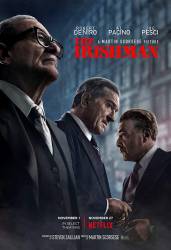
Question: I don't quite get how the Hoffa killing plays out. His son is there in the car, Frank and Jimmy go into the house, Frank shoots him, apparently not heard, then leaves the house...doesn't Chuckie Hoffa have questions? Like where his dad is for a start, let alone the gunshots he must have heard?
Chosen answer: First off his name was Chuckie O'Brian. Jimmy Hoffa wasn't his biological father, he was more in the nature of a foster father. Second, he probably knew what happened. What was Chuckie going to do? It was a sanctioned hit. And if he went to the police he would have ended up the same as Jimmy Hoffa. They put him in the middle of it to keep him quiet. If he goes after the people who did it, he's as good as dead. If he talks he could end up in jail with them, and the mafia will probably kill him anyway.
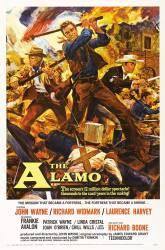
Question: In the John Wayne film, Frankie Avalon is riding into Sam Houston's camp and is stopped by two sentries. The one questioning him appears to bear a striking resemblance to Robert Mitchum. Is this him?
Answer: No, that's not him. Robert Mitchum has no part in this movie.
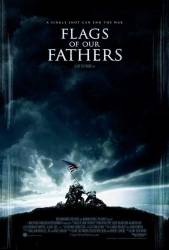
Question: What exactly happened to Iggy? Are we ever supposed to know exactly how he died?
Answer: The movie insinuates that he was killed horribly but doesn't provide many details. Books about Iwo Jima have quotes from witnesses about what happened to him and they all say that he was very brutally tortured, including having his eyes cut out and his genitals removed and stuffed in his mouth. The book "Flags of Our Fathers" contains the following quote, "A few days later someone yelled that they'd found him. They called me over because I was a corpsman. The Japanese had pulled him underground and tortured him. His fingernails... his tongue... It was terrible. I've tried hard to forget all this.

Question: Was Josh Chamberlain really given mutineers like in the movie?
Answer: Yes. After the 2nd Maine Infantry was disbanded, there were 120 men with 1-year of service left. They mutinied because they said they only agreed to fight under the 2nd Maine flag and the Army disagreed. So they were marched under guard to the 20th Maine, led by Chamberlain. Chamberlain was able to convince most of them to fight, even though he was ordered to shoot any who did not fight.
Is there a reason why a few of them refused to fight?
Yes. The same reason why they mutinied.
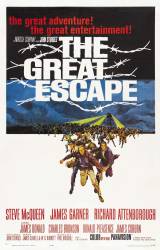
Question: How come Hilts could not answer the German at the end of the movie when he said he could speak German to Colonel von Luger?
Answer: .And, just to add to the previous answer: even if he could speak conversational German, he would likely do so with a very strong American accent (as he does when he speaks the few words to the Commandant earlier), so the guard would have picked up on that right away, anyway.
Answer: He could have only known a small amount of German, enough to answer a question or two, but not enough to carry on a full conversation. Also, the German seemed to be wanting to have a full conversation with him. He was on the run and didn't have time to talk. He was most likely being a smart ass saying he knew German.
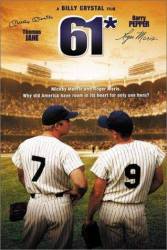
Question: Mickey Mantle was on a home run streak that year and then got hurt. I am just curious to know, if Mickey Mantle had been the one to break the record, if there would be such an uproar over it.
Answer: Actually Maris was MVP the previous year, 1960.
Answer: Probably not. Mantle was loved by the fans and the sports writers, plus he was a good layer. Maris never really had a good season before, or after, so a lot of people did not think he deserved to be the one to break the record.
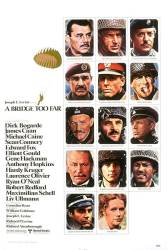
Question: In the scene where the American 82nd Airborne is storming the river bank at Nijmegen, there is a brief shot of one of the German defenders, who looks quite startingly like a puberescent boy. Anyone know whether this assumption is correct, and if so, what's the background to this story?
Chosen answer: The Germans did use some Hitler youth movement in the war.
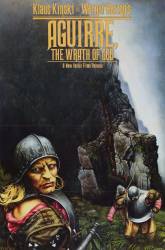
Question: Why did Klaus Kinski try to kill one of the extras with a sword prop?
Answer: Kinski suffered from mental illness for most of his life. He was given to bouts of unprovoked outbursts and violence. He was eventually diagnosed with psychopathy (antisocial personality disorder). On movie sets, he was notorious for being physically and verbally abusive to the crew, who generally hated him. The sword incident was just one of many. On the production of this film, director Werner Herzog carried a gun on him in the event he had to protect himself or others. It was only because Herzog was a long-time friend that he hired Kinski for acting jobs. Kinski was flat-out crazy. He was eventually unable to get any work as an actor.
Agreed. I forget what film set it was but Kinski also once fired a rifle at a bunch of crew members and blew a guy's finger off. He was unstable.
It was also Aguirre, The Wrath Of God. Kinski was irritated by the noises from a hut where cast and crew were playing cards and, out of anger, repeatedly fired a Winchester rifle into it. One of the bullets took the tip of an unknown extra's finger off.
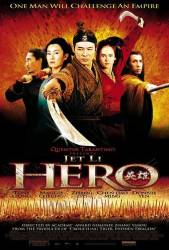
Question: Was this film based on an true story, or was it fiction based on the true warring states as the backdrop?
Answer: It was a fiction based on the true historical period as backdrop, althought it sorted of resembled a true event that the deserter general of Qin gave his head to an assassin as a pass to get close to the Emperor, who was then still a king of a state among the warring states.

Answer: This is a question the movie chose not to answer. It could be assumed he died as the Powhatans did not have the knowledge to treat gunshot wounds. However, there were cases even as far back as this time of individuals being able to survive gunshot wounds as long as the bleeding could be stopped and infection didn't spread. As the Powhatans did know herbs in the land to treat infections and did know how to mend bleeding; it is also possible he lived though he would have walked with a limp for the rest of his life.